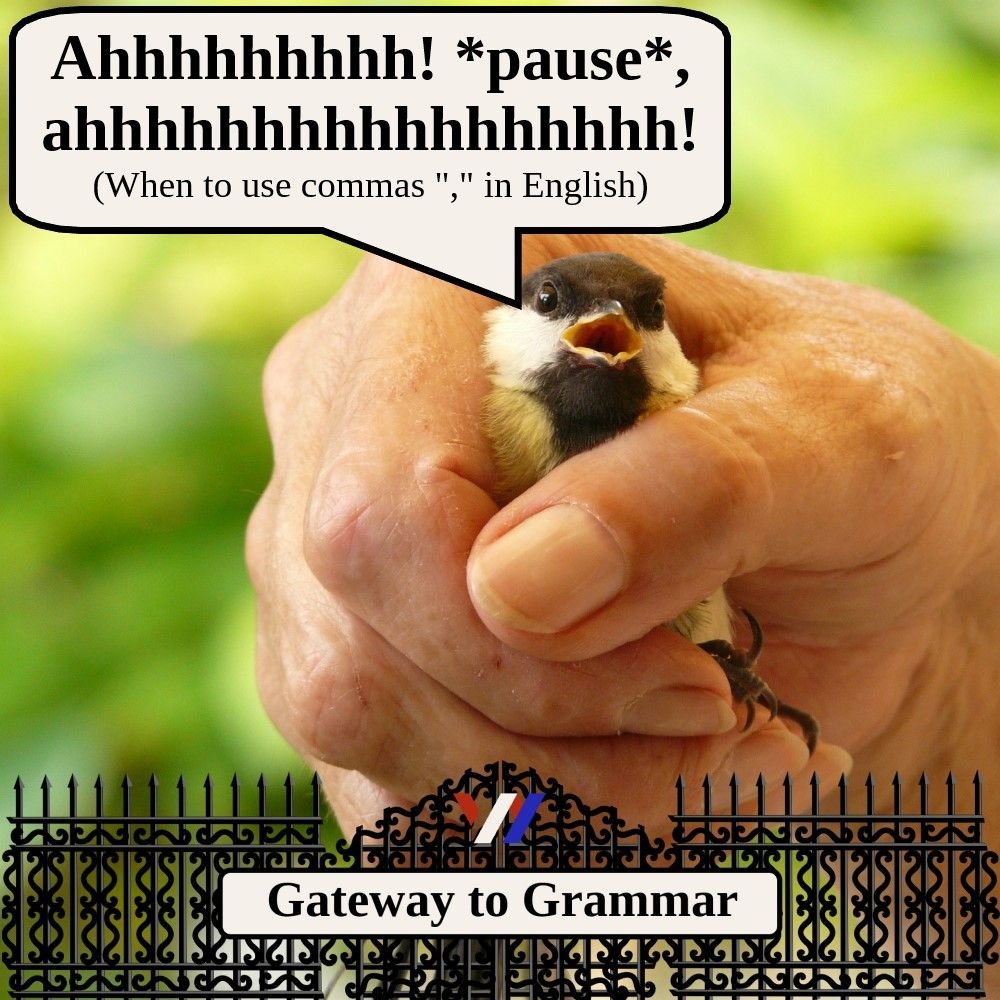Gateway to Grammar: When to use commas in English
It can be a little difficult remembering when to use commas (,) in English, especially if they are used differently in your native language. Here are some helpful tips to show you when to use commas correctly in your writing!
· When you pause naturally – read out what you have written. Where do you naturally pause? That is where your commas should go. We pause and change tone when speaking to separate ideas.
· Separating ideas in a sentence – If your sentence contains more than one idea, it is good to place a comma to show they are not one giant idea.
· Making lists – commas separate items in lists (1,2,3…).
· The oxford comma (at the end of a list) – Separate the last 2 items on a list like this: “…frogs, and swans.” This shows the last item is swans, not “frogs AND swans”.
· Separating subclauses from main clauses – Your sentences should have a main clause, you can think of them like the main piece of information. If you add in extra information at the beginning, in the middle, or at the end, separate the extra information (sub-clause) with commas. If it is in the middle, separate it with a comma at the beginning and at the end of the extra information.
You will often hear people say: “break up your long sentences with commas”. Only do this if it makes sense to. If you have a long sentence because you are talking about a few related ideas, use commas to separate them. If it would make sense to give each idea a new sentence, do this. Long complicated sentences that just seem to go on forever, and ever, and ever, and ever, and ever… are not very good for helping people understand.
If in doubt, say it out loud! Where did you make a little pause? When did you change your tone? This is usually where your comma should be.

